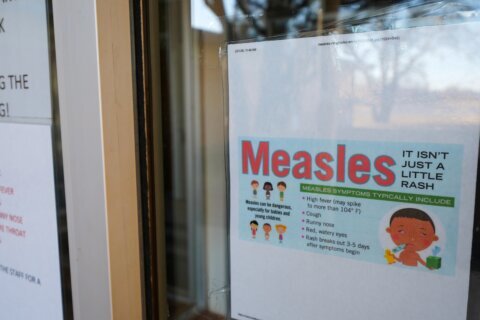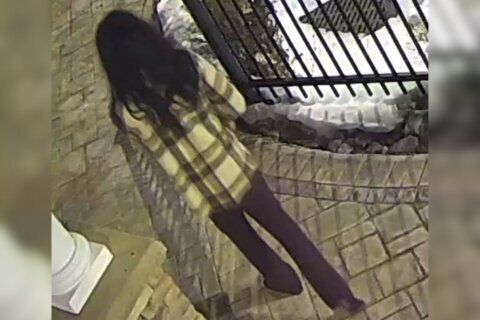From vaping, the cost of supplies to cellphone policies, the WTOP team is studying up on hot-button topics in education across the D.C. region. Follow our series “WTOP Goes Back to School” on air and online this August and September.
The Montgomery County Board of Education in Maryland has approved a plan to use $2 million to install vape detectors in all county high schools.
While there’s agreement that students vaping in bathrooms, and even in hallways, has been a problem in the schools, there are still lots of questions.
During the school board meeting Tuesday, Praneel Suvarna, a student member of the board, asked what the procedures would be when vape detectors go off.
Dana Edwards, chief of district operations, responded by saying that the school system had learned from the pilot program and “the part that we will take from that pilot are the best practices,” but didn’t specify what those best practices were.
The school system piloted the use of the detectors in five county high schools in the 2023 school year.
Ricky Ribeiro, the president of the Kennedy High School PTSA, is skeptical about the districtwide adoption of vape detectors, in part, he said, because there was no discussion of the findings of the pilot program.
“If you did a pilot, what did you learn? What worked and what didn’t work and why wasn’t that shared with the community before we go ahead and invest $2 million to install them?” he asked.
Suvarna asked Marcus Jones, the newly appointed chief of security and compliance at MCPS, about whether the use of the vape detectors would require more staffing.
Jones told Suvarna, “I don’t think we have a solid number at this point, I know that there is some funding allocated for a position.”
Suvarna said there are concerns about the way the vape detectors work and how they are triggered: “They will say the vape detectors can be triggered by things like perfume.”
The $2 million for the vape detectors would be funded through a settlement between MCPS and the e-cigarette company Juul. School board documents indicate the allocation of the $2 million would be subject to approval by the county council.
Another question that came up during Tuesday’s meeting was related to concerns about drug use on and around school grounds. Suvarna asked Jones if all security staff could be equipped with the overdose reversal drug Narcan.
“I don’t have an exact timeline,” said Jones, explaining that discussions with the county’s Health and Human Services agency indicated, “there’s a little bit of, I guess, a supply issue.”
But, Jones said, MCPS is continuing to work with the county on the issue.
Ribeiro said while he’s “pleased by what I have heard so far” from Jones and that he liked that the new school superintendent, Thomas Taylor, was “security-centered” at his first meeting with the school board, he felt more attention needed to be paid to drug use in the school system.
He added that the recent news about a first grade teacher accused of distributing drugs — even leaving her classroom to sell drugs outside the building — spotlights how pervasive the problem is.
“We have had kids overdosing. We have student dealers. MCPS has a very serious drug use and trafficking problem,” Ribeiro said. “The call is coming from inside the house.”
Get breaking news and daily headlines delivered to your email inbox by signing up here.
© 2024 WTOP. All Rights Reserved. This website is not intended for users located within the European Economic Area.








